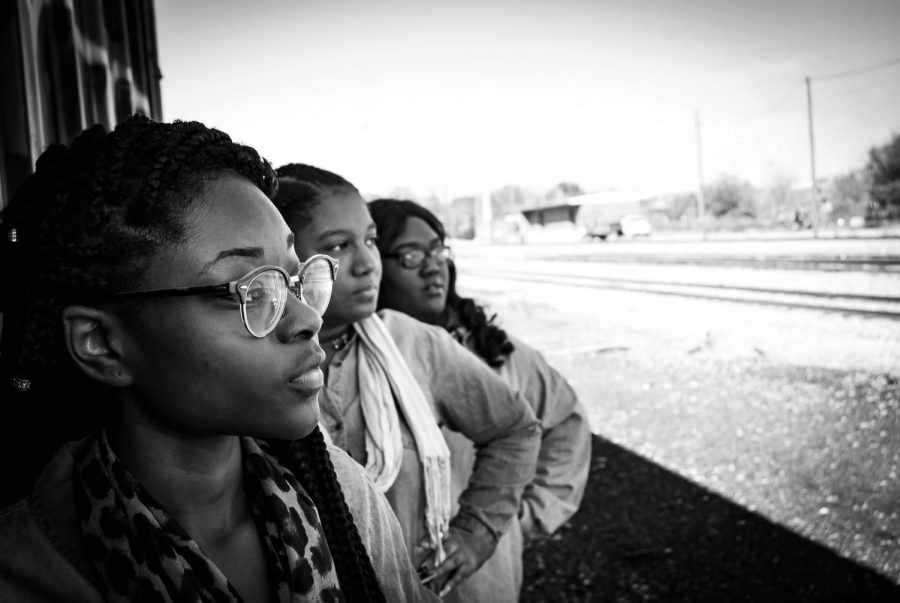Black women make their mark in history
February 11, 2018
A great way to celebrate Black History Month is to learn more about black history. Black women have been a huge part of black history and current black culture, whether it’s Harriet Tubman or Beyonce and many other women in between. So, here are just a few black women who have contributed greatly to the world around them.
Marsha P. Johnson (1945 – 1992)
Johnson was a transgender woman, who was one of the women to start the Stonewall Riot in 1969 when she threw the first brick. She was also an LGBTQ activist that helped found an organization that advocated for transgender youth called Street Transvestite Action Revolutionaries (STAR). STAR provided shelter to homeless members of the LGBTQ community in places such as New York, Chicago, and California. Johnson was murdered in 1992. Several documentaries and movies were made about Johnson such as Pay It No Mind: Marsha P. Johnson (2012), The Death and Life of Marsha P. Johnson (2017), and Happy Birthday, Marsha! (2017).
Audre Lorde (1934 – 1992)
Lorde was a writer and activist. She began writing in high school, which is when her poem was featured in Seventeen magazine. Her poetry was also later published in volumes, including “New York Head Shop and Museum” (1974), “Coal” (1976), and “The Black Unicorn” (1978). She often used her talents in writing to fight against racism, homophobia, and even gender issues. Lorde died in 1992 due to breast cancer.
“It is not our differences that divide us. It is our inability to recognize, accept, and celebrate those differences,” Lorde said.
Elaine Brown (1943 – Present)
Brown is a singer, writer, and an activist. She was also the very first woman to be elected to the Panther Central Committee which is part of the Black Panther party. Once Brown became a chairwoman for the party, she was able to work on making sure that the party also included the aspirations of black women. Her leadership role was solidified when Huey Newton fled to Cuba, but once he returned, there was an increased hostility toward her leadership and Brown left the party. Brown also ran for city council twice in Oakland, California. Brown, in 2007, even ran for president through the Green party.
Brown has dedicated much of her life to advocating for prison and education reform, and juvenile justice. Brown actually founded several organizations that involved prison and education reform and juvenile justice.
Angela Davis (1944 – Present)
She is an activist, scholar, and writer who advocated for the oppressed, and continues to do so. She was also a member of the communist party and she often worked with the Che-Lumumba Club, which was an all-black branch of the communist party. Davis was also a professor at the University of California, Los Angeles and later at the University of California, Santa Cruz.
Davis was also the co-founder of an organization called Critical Resistance, which was attempting and continues to attempt to end the prison industrial complex. Davis has even written several books such as “Women, Race, and Class” (1980), “Abolition Democracy” (2005), and “The Meaning of Freedom” (2012).
“To understand how any society functions you must understand the relationship between the men and the women,” Davis said.
Daisy Bates (1914 – 1999)
Bates was a civil rights activist, a journalist, and even a publisher of an African-American newspaper, the Arkansas State Press. In 1952, she became the president of the Arkansas Chapter of the National Association for Advancement of Colored People (NAACP). As the president of the chapter, she played a huge role when it came to fighting against segregation.
Bates even helped the little rock nine, the first black students to attend the all-white Central High School, as they fought for integration. She later wrote about her experiences in her book “The Long Shadow of Little Rock” (1962).
Ida B. Wells (1862 – 1931)
Wells was born a slave, but not for long because right after she was born, the Emancipation Proclamation was passed, which legally freed all slaves. Wells then went on to become a journalist and activist. She was also an abolitionist and a feminist. As a journalist, she wrote about lynchings and even went down south to research lynchings. Wells also led an anti-lynching crusade in the 1890’s. One editorial about lynching led to a mob storming the office of her newspaper.
“The way to right wrongs is to turn the light of truth upon them,” Wells said
All of these women have added something to the world, whether it was a brick to ignite a riot or a book to inspire readers. They have stood up for what they believe in, even if it meant that they had to face opposition. That is what makes these women so memorable and women that people should know about.


